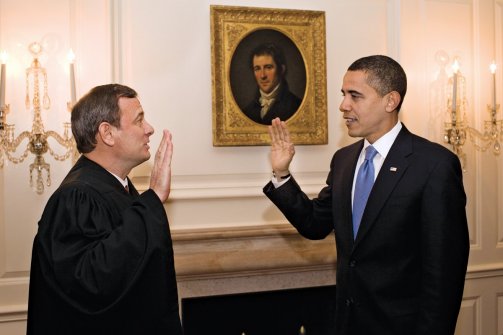 One of William F. Buckley’s most famous quips involved the notion that he’d rather be governed by the first 400 names listed in the Boston telephone directory than by the Harvard faculty.
One of William F. Buckley’s most famous quips involved the notion that he’d rather be governed by the first 400 names listed in the Boston telephone directory than by the Harvard faculty.
Those words came to mind as I read liberal Harvard law professor Laurence Tribe’s Newsweek column about his most famous students: the current U.S. president and Supreme Court chief justice (aka the “clever wimp)”.
Double-back for a moment to the time a dozen years earlier [than a conversation with then-research assistant Barack Obama] that the young John Roberts—who last month singlehandedly decided the fate of Obamacare—was my constitutional law student. I never got to know him nearly as well as I did Barack. He had taken just one basic course with me, while Barack had taken a basic course and an advanced seminar. Roberts was never my research assistant, and he was but one of more than 200 students with whom I conducted a Socratic dialogue in class.
Still, I found myself thinking about one aspect of that 1977 course as I listened to the Supreme Court’s oral arguments on the Affordable Care Act in March. In that class and others over the years, I had spoken about two well-established legal principles: that Congress can properly use its taxing power to regulate behavior, and that the Supreme Court should make every effort to uphold an act of Congress whenever fairly possible. So I was particularly struck by the chief justice’s questions at the oral arguments about whether it makes sense to insist on calling the act a “mandate” when the only thing that happens when you don’t do what’s required is a modest increase in the taxes you owe to the IRS. Labels might not be decisive, Roberts seemed to be saying: how things work in practice sometimes matters more than what they’re called. That was the moment I started thinking that the chief justice might well cast the decisive vote to uphold the mandate as an exercise of the taxing power, a prediction I made publicly at a time when few others expected either that outcome or that line of reasoning.


